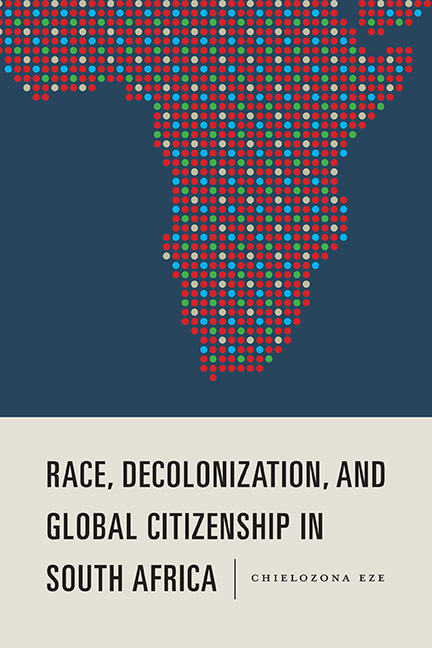Book contents
- Frontmatter
- Dedication
- Contents
- Preface
- Acknowledgments
- Introduction: New World Order, New Moral Challenges
- 1 Theorizing the Present: Sources of the New Moral Self in South Africa
- 2 Nelson Mandela and Desmond Tutu as Global Citizens
- 3 The Violence of History and the Angel of Forgiveness
- 4 The Challenges of Cosmopolitan Thinking in a Postapartheid Society
- 5 Of Xenophobia and Other Bigotries: Forging Transcultural Visions
- 6 Narrating Ubuntu: The Weight of History and the Power of Care
- Conclusion: South Africa in Search of a New Humanism
- Notes
- Bibliography
- Index
Introduction: New World Order, New Moral Challenges
Published online by Cambridge University Press: 24 July 2019
- Frontmatter
- Dedication
- Contents
- Preface
- Acknowledgments
- Introduction: New World Order, New Moral Challenges
- 1 Theorizing the Present: Sources of the New Moral Self in South Africa
- 2 Nelson Mandela and Desmond Tutu as Global Citizens
- 3 The Violence of History and the Angel of Forgiveness
- 4 The Challenges of Cosmopolitan Thinking in a Postapartheid Society
- 5 Of Xenophobia and Other Bigotries: Forging Transcultural Visions
- 6 Narrating Ubuntu: The Weight of History and the Power of Care
- Conclusion: South Africa in Search of a New Humanism
- Notes
- Bibliography
- Index
Summary
Can Africa provide a theory of living in our globalized world? This question, admittedly rhetorical, stems from Jean Comaroff and John L. Comaroff's meditation on the new theoretical impulses from the global south. The answer is in the positive. Yes, Africa has provided a theory of living in the twenty-first century. This theory is in Nelson Mandela's vision of the post-apartheid South Africa; this theory is Nelson Mandela. The world greeted the transition from apartheid to democracy in South Africa as a unique phenomenon and viewed Nelson Mandela as a global icon of morality. Indeed, given its sordid colonial history, the country surprised the world with the peaceful and cosmopolitan nature of that transition. In the words of Njabulo Ndebele, the anticipated disintegration of the country in a “confl agration of violence did not take place.” Besides avoiding violence, the leaders of the transition emphasized the African National Congress's articulation of nonracialism, thus making South Africa a home for all peoples regardless of ancestry or background. South Africa thus provides a valuable case study for the appreciation of our world as a globalized space in which migration has become the norm. In Mandela, it gave the world an exemplar of decolonization whose potency lies in replacing the Euro-modernist, colonialist mind-set, built on exclusion, with a cosmopolitan one built on inclusion and openness to otherness. Against a background of centuries of intermixing and entanglement of different ethnicities and races, the country is a microcosm of the global sociocultural condition— nearly every society is becoming heterogeneous, comprising people from diverse races, ethnicities, religions, and other markers of identity.
South Africa's political and moral accomplishments led Philippe-Joseph Salazar to the belief that the country could be “a blueprint for the construction of a European nation.” Paul Gilroy expressed the hope that South Africa could provide “a new cosmopolitanism” for the world. I agree with these sentiments. Yet, I cannot resist the nagging urge to wonder whether we can we still talk about the country in optimistic terms now, more than twenty years after the transition. Did the forces of political change enhance economic justice, social cohesion, and human rights? What can the rest of the world learn from the successes and failures of South Africa as a postcolony or as a microcosm of a world that is being transformed by globalization and the mass migration of people?
- Type
- Chapter
- Information
- Publisher: Boydell & BrewerPrint publication year: 2018



